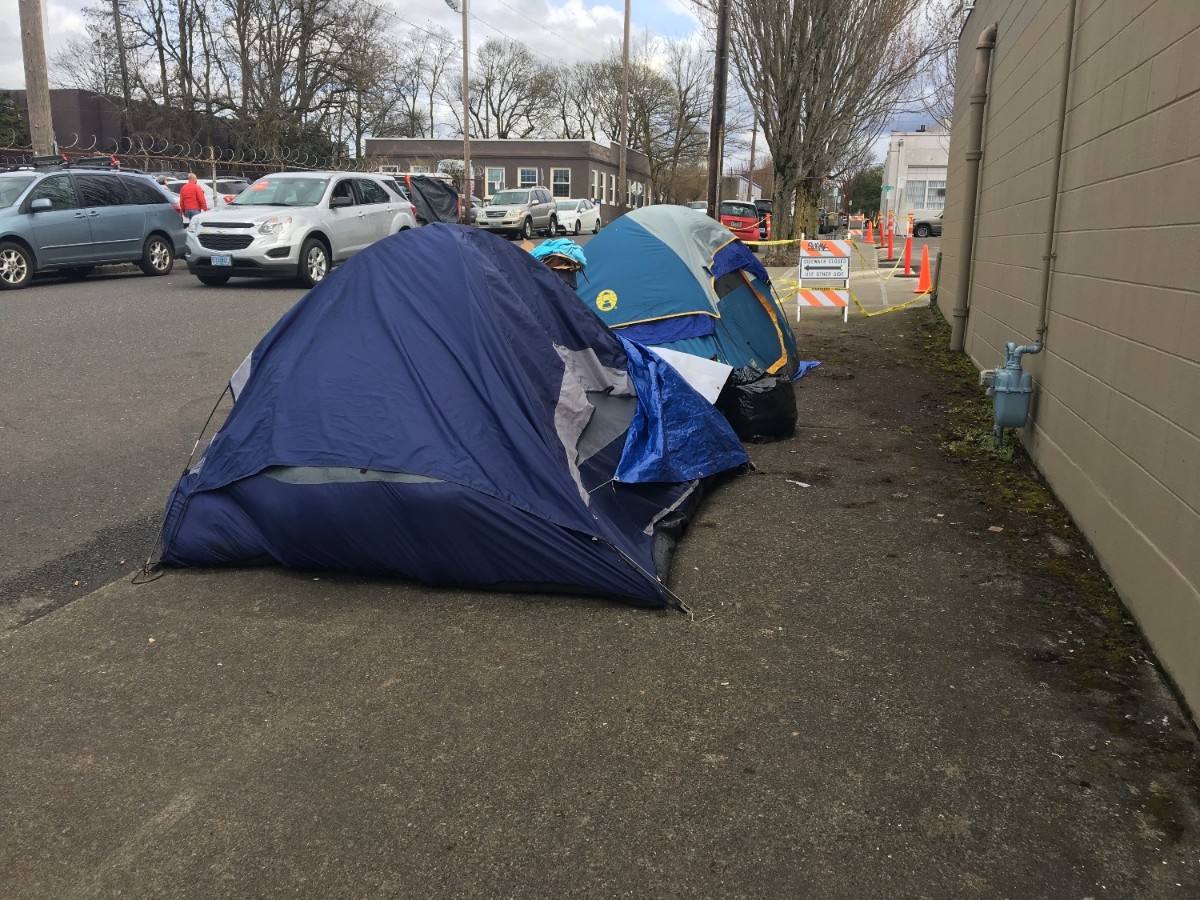When it comes reducing the risks and harms of COVID-19 faced by unhoused people, public health and human rights officials are in agreement: Do not violently displace settlements through sweeps and property seizures. Instead, they recommend providing more sanitation resources to existing settlements and new emergency shelter spaces for those without them. Many housing justice activists are demanding more: permanent housing for those without it. They propose to reclaim vacant buildings or purchase others that are behind on their taxes or mortgages.
Hilary Malson, a planning and geography scholar, and Gary Blasi, a public interest lawyer, from the University of California, Los Angeles, considered this to be the “best approach” in their July 21 report, published by the Luskin Institute on Inequality and Democracy. They also “strongly recommend” the sanctioning of community-organized settlements and the provision of sanitation stations.
However, as a supplementary measure that the authors “cautiously recommend,” cities could additionally establish temporary sites for emergency shelter, doing so—interestingly—by rezoning parcels of urban land as campgrounds.
Tents are already widely used by people who are unhoused, and zoning codes could be suspended by emergency declarations, circumventing anti-camping laws and providing legal protection for residents.
“Given the current state of emergency that we are currently in, it is worth underscoring that fastest and cheapest temporary settlement to sanction would be one comprised of ordinary camping tents, a temporary housing form that is already in use by thousands of unhoused people,” write Malson and Blasi.
Some research has shown that some unhoused people would welcome this form of emergency relief. More than half of 584 people surveyed in the San Francisco Bay Area (prior to COVID-19) said they’d prefer to be in a sanctioned campsite than a traditional homeless shelter, according to a forthcoming book cited by the study authors. Most would rather “stay in their tents in a legal campsite, serviced with sanitation amenities, as opposed to being relocated into existing shelters,” Malson and Balsi summarized.
“The respondents cited restrictive curfews, overcrowding, and limitations on partners and pets among their resistance to staying in shelters,” the researchers commented. “Unhoused people need housing without condition, as part of the human right to exist, not as something to be earned through obedience.”
Portland, Oregon demonstrates the proposal’s feasibility. What started out in 2000 as a camping protest by homeless activists has become Dignity Village: an autonomous, city-approved site providing tiny-home shelter for up to 60 people. It was officially sanctioned by the city council in 2004, by way of a state statute that permits local jurisdictions to establish tent-based “transitional housing accommodations.” It is now self-sustained by a monthly rent of $50 from each resident and a cooperatively run firewood microbusiness.
Malson and Balsi’s caution about this approach stems from a history of sanctioned campground-style shelter spaces that resulted in harm. In 1987, the city of Los Angeles opened “Urban Campground,” a property outfitted with tents and 10 showers in order to contain at most 600 unhoused people, who would be forcibly relocated. Clearing mostly Black men, the project was called “Soweto, USA,” a reference to the “forcibly segregated township” in apartheid South Africa. After a summer of housing more than a total of 2,600 Angelenos in what had been described as an “internment camp,” the city closed the project. It had, as the authors write, “effectively imprison[ed] people whose only offense was to be poor and without housing.”
Portland itself has a complicated relationship with emergency campground shelters. In April 2020, the city opened three new campgrounds, one prioritizing people of color, another LGBTQ people and a third open to everyone. On June 26, Lucas Hillier, the manager of the Homelessness and Urban Camping Impact Reduction Program, informed the mayor that the program has “not moved encampments, has continued to offer trash services, and has maintained 42 hygiene stations located in proximity to encampments throughout Portland community.”
But Hillier then announced that the program would begin “a limited resumption of [clearing notice] posting, cleaning, and personal property removal” of camps deemed problematic by city officials. This would be guided, in part, by a risk assessment tool “primarily focusing” on “conspicuous drug use.” Since reporting began in August, 10 removals have been conducted.
While Malson and Balsi think that campground rezoning could help provide at least some protections for people, the measure is far from ideal.
“It is unacceptable that, in the wealthiest nation in the history of the world, and in a state that ranks as the world’s fifth largest economy, we are writing in support of such a minimal alternative to housing,” they write. However, “Emergency plans for sheltering unhoused people—where community building, rather than containment or incarceration, is the guiding principle—are a sphere where necessary changes to society are possible.”
Photograph of unhoused people’s tents in Portland, Oregon in 2017 by KingoftheDead via Wikimedia Commons/Creative Commons 4.0





Show Comments